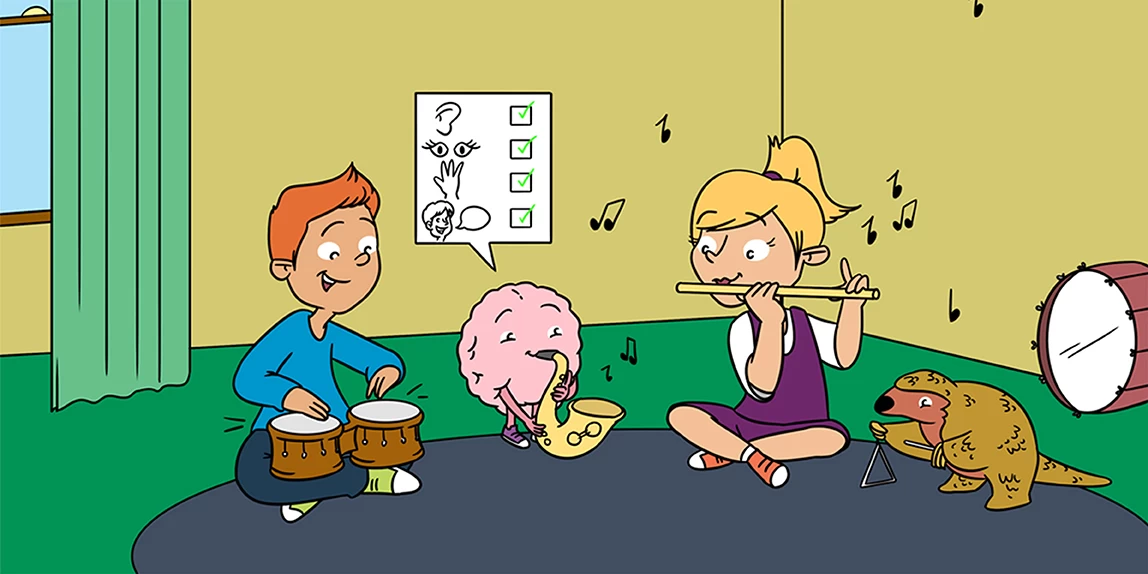Music has been a part of human civilization for thousands of years. It is a form of art that can evoke emotions and affect our mood. But did you know that music can also have an impact on our intelligence? There is evidence to suggest that listening to music and playing musical instruments can improve our cognitive abilities, particularly our IQ. In this article, we will explore the relationship between music and IQ improvement.
What is IQ?
IQ stands for Intelligence Quotient, which is a score derived from a standardized test that measures a person's cognitive abilities. It is widely accepted as a measure of intelligence, although it has its limitations. IQ tests typically measure a range of skills, including problem-solving, spatial awareness, memory, and verbal ability.
What is the relationship between music and IQ improvement?
Studies have shown that there is a positive correlation between music and IQ improvement. One of the earliest studies on this topic was conducted in the 1950s by psychologist Edwin Gordon. He found that children who received musical training had higher IQ scores than those who did not.
Since then, several other studies have been conducted to explore the relationship between music and IQ improvement. A study conducted by researchers at the University of Zurich in Switzerland found that listening to music can increase cognitive processing speed and improve working memory. The researchers found that listening to music activates the same areas of the brain that are involved in cognitive processing, suggesting that music can help improve cognitive function.
Another study conducted by researchers at the University of Toronto found that playing a musical instrument can improve IQ scores. The study involved testing the IQ scores of children who received musical training and those who did not. The researchers found that the children who received musical training had higher IQ scores than those who did not.
How does music improve IQ?
Music has been an essential part of human culture since ancient times, serving as a form of expression, entertainment, and communication. However, music has more benefits than just entertainment; studies have shown that music can also have a significant impact on our intelligence quotient (IQ). This article will explore the relationship between music and IQ improvement.
What is IQ?
IQ, or intelligence quotient, is a measure of cognitive abilities, including problem-solving, spatial awareness, memory, and verbal ability. The IQ score is derived from standardized tests that measure intelligence. The score range is typically between 70 and 130, with the average score being 100.
The Relationship Between Music and IQ Improvement
Research studies have shown a positive correlation between music and IQ improvement. According to a study conducted by the University of Zurich in Switzerland, listening to music can increase cognitive processing speed and improve working memory. Furthermore, playing a musical instrument can improve IQ scores. In a study conducted by researchers at the University of Toronto, the IQ scores of children who received musical training were compared to those who did not. The study found that the children who received musical training had higher IQ scores than those who did not.
How Does Music Improve IQ?
Music can improve IQ by enhancing cognitive processing, requiring the brain to process information in real-time, including pitch, rhythm, melody, and harmony. Playing a musical instrument can also improve IQ by requiring the brain to perform complex tasks, such as developing hand-eye coordination, spatial awareness, and memory skills. Furthermore, playing a musical instrument can improve executive function, which is the ability to plan, organize, and complete tasks.
The relationship between music and IQ improvement has been studied extensively. In one study, researchers at the University of Kansas found that musicians have higher IQ scores than non-musicians. The study also found that the longer a person had been playing an instrument, the higher their IQ score tended to be. Additionally, a study conducted by the University of Helsinki found that playing an instrument for just two years can have a positive impact on cognitive function and brain plasticity.
Music can also improve IQ by reducing stress and anxiety, which can have a negative impact on cognitive function. A study conducted by the University of Maryland found that listening to music can reduce stress hormones, such as cortisol, and improve immune function. Furthermore, listening to music can improve mood and increase motivation, which can improve cognitive performance.
The Mozart Effect
The Mozart Effect is a popular theory that suggests that listening to Mozart's music can improve IQ. The theory originated from a study conducted by researchers at the University of California, Irvine, in 1993. The study found that listening to Mozart's music can improve spatial-temporal reasoning, which is the ability to understand and process visual information. However, subsequent studies have found mixed results regarding the Mozart Effect, and some researchers have criticized the theory's validity.
Despite the controversy surrounding the Mozart Effect, studies have shown that listening to music can have a positive impact on cognitive abilities, including IQ. Furthermore, playing a musical instrument has been shown to have long-term benefits for cognitive function and brain plasticity. Therefore, incorporating music into our daily routines can have many benefits.
In conclusion, music can have a positive impact on cognitive abilities, including IQ. Studies have shown that listening to music and playing a musical instrument can improve cognitive processing, working memory, and IQ scores. Furthermore, music can reduce stress and anxiety, improve mood, and increase motivation, all of which can improve cognitive performance. While the Mozart Effect has been a popular theory, its validity is still debated among researchers. However, the evidence suggests that music, in general, can have a positive impact on our cognitive function and should be considered as an important aspect of our daily routines.







